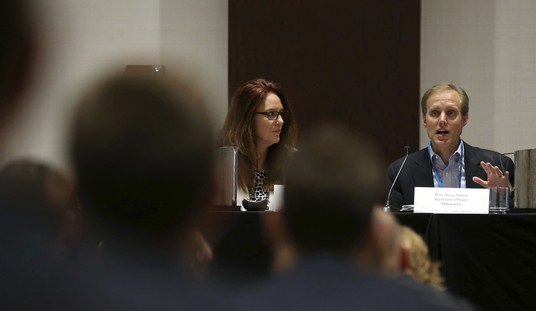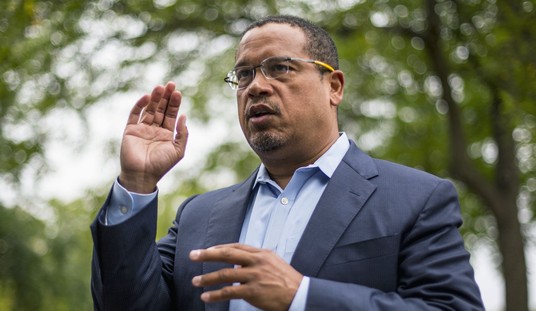This report from a CBS poll starts promisingly enough:
A new CBS News poll shows that Americans have mixed feelings about what should happen to Medicare: While 53 percent say the program needs fundamental changes …
Wow! Here I was, underestimating the ability of the American public to deduce that a Ponzi scheme inevitably ends badly, and the voters surprise us all. Or at least they do until you read the rest of the sentence:
58 percent say it should continue the way it is set up now.
Er, so we should fundamentally change Medicare to keep it continuing as it is set up now? Where did CBS poll for these results, in psychiatric hospitals? Or did the methodology create the oxymoronic results?
Americans were asked which of three statements comes closest to their views: “Medicare works pretty well and only minor changes are necessary to make it work better”; “There are some good things about Medicare, but fundamental changes are needed”; or “Medicare has so much wrong with it that we need to completely rebuild it.”
Twenty-seven percent – including 36 percent of Democrats – said only minor changes are needed. Thirteen percent, meanwhile, said the program must be completely rebuilt. But 53 percent says Medicare needs fundamental changes — even though there are good things about it. That includes a majority of Republicans and independents, and 43 percent of Democrats. …
Respondents were also asked if they would like to see Medicare “continue the way it is set up now, as a program that pays the doctors and hospitals that treat senior citizens” or “if they think it should become “a program that gives senior citizens payments towards the purchase of private insurance.” Democrats have called for keeping Medicare as it is now, while Republicans have advocated transforming it into a voucher-style system in which seniors chose their coverage option and are allotted a certain amount of money to cover their insurance costs.
In the poll, 58 percent of Americans said the program should continue as it is now – including 70 percent of Democrats and 58 percent of independents. Less than half of Republicans – 45 percent – share that view. Majorities of both those who are over 55 and under 55 said the program should continue the way it is set up now. (The Republican plan would transform Medicare only for those who are 55 or younger.)
It’s easy to blame the pollster in this case, but the methodology really isn’t the problem in this case. (Nor is the sample; this came from the same poll as the presidential approval rating last week, where Democrats and Republicans were evenly sampled.) The problem in this case lies with the electorate, and the fundamental gap between acknowledging a problem and taking action to correct it.
Voters see the fiscal dead end towards which Medicare is hurtling at breakneck speed. They want the program changed to avoid the collapse, which most people understand will require fundamental changes. On the other hand, they don’t want to lose their future benefits, which they see as being guaranteed by the same single-payer model that has created the Ponzi scheme in the first place. It’s hard to imagine what kind of “fundamental” change envisioned by the obvious overlap of the 53% who back such change and the 58% who want the status quo to remain, but it’s clear that it would be akin to rearranging deck chairs on the Titanic.
Without a doubt, this presents a big challenge to anyone who proposes fundamental change to Medicare, but it also poses problems for those who oppose fundamental changes, too. Politicians who keep using the Chip Diller routine of yelling “All is well!” are not likely to find their credibility boosted in this climate, while those who roll out a complete re-imagining of Medicare will have to work hard to convince people of the necessity of such an approach. It’s a perfect climate, unfortunately, for weak and barely-incremental proposals that merely kick the can a couple of years down the road … which is almost certainly what Joe Biden’s task force will end up recommending to Congress. The implosion will have to be in motion by the time voters are willing to part with the fantasy of single-payer, and by that time, it will be too late for comfortable transitions.








Join the conversation as a VIP Member